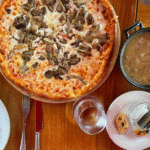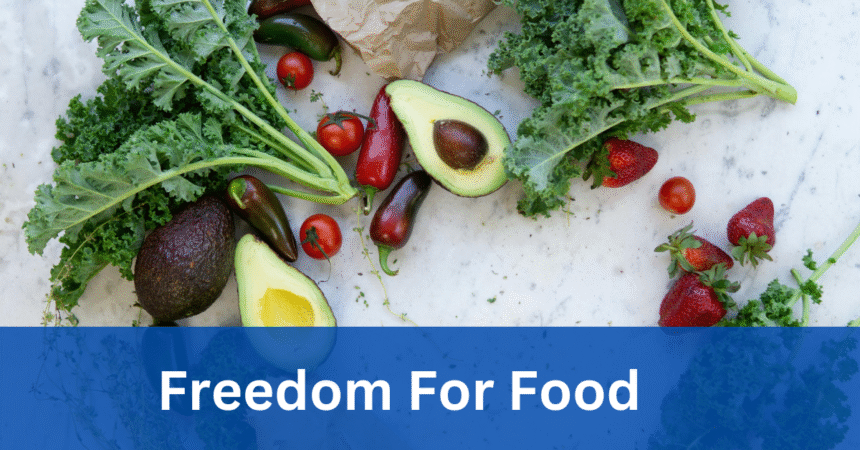Why Food Freedom is Important
We exist in a society that compels us to regulate or penalize food decisions. diets, guilt, moral judgement; it is weary and it doesn’t work. Food freedom is an alternative that is well kin and suggests that you can adequately nourish your body and soul with respect, interest, and care.
That is why this concept has a good ranking. patrimonies with an emphasis on feeling strong and spiritually empowered, and not the number of calories consumed, stand out strongly with people and leave them feeling understood, and leave them with a positive experience to share. This is the kind of content that the search engine gods are demanding we produce.
Understanding Intuitive Eating and Reducing Guilt
Second, the concept of intuitive eating goes beyond this fad, in that it represents liberation through food. As easy as it is to care about what your body is saying and not feeding it and yourself until your full stop, it is powerful and a life-altering practice. Add to that shaking off the guilt factor in your head that we still struggle in food is not morally good or bad, but it is something we can take a break.
In high-ranking material, the guidance is typically done empathetically and expressively, and involves personal experiences or practices they can attempt. Such kind of helpful, human messaging keeps readers continuing to read and share.
How to Reclaim Your Freedom for Food Today
- Take a pause before you eat. Observe how you feel hungry-out of interest rather than condemnation. Do you hunger physically or emotionally? By naming this, you are making a choice and not a reaction.
- Take away the moral labeling. There are no good or bad foods.The only problem is that you eat more than your body needs. In the long term, such trivial changes in mindset allow you to avoid self-punishment, as in the case of putting ice cream in the category of treat, not sin.
- Be conscious of what you eat. Does this food please your gastronomic sensors, your organism or both? The solution can redeem you to conformity
- Create rituals. Take time to enjoy tea, or organize a once-a-week indulgence you enjoy. Rituals enhance your faith in enjoyment, and not deprivation.
- Revere differences in food. Freedom in food means respecting the anticipation, taste, and all food types. When your plate is happy, chances are your soul is, too.
And these steps of action and transformation reflect what readers seek to find, that of a liberation, not a confinement.
Building a Healthy Relationship That Lasts
Long-term freedom in food is not only about the short-term decisions; it is more about restructuring your mindset about food and yourself.
- Self-compassion: With any decision, there is an opportunity to grow. Fall into the olden ways? That’s okay. Learn to accept, forget, and do some forward planning.
- Become aware: Become aware of patterns- e.g,. Are you stressed and that causes a sugar craving, or do you skip meals and then binge? Consciousness brings the gateway to the subtle transformation.
- Approach cooking creatively: Making cooking fun and cozy is a way of solidifying a comfort with food as both pleasurable and healthy.
- Listen to your body: There are days when light meals feel good, days when big breakfasts are better. Trusting your body builds long-term trust with food.
Sites that rank well usually show quotes like those above, plumbing right beyond tips—where head, heart, and habit meet. That is a high-powered and memorable.
Why This is Efficient to the Readers and Search Engines
When Tribe members are drawn into reading an article that correlates with their personal experience, that is when they stay longer, share, bookmark, or comment- this is a signal they see value. That is a winning organic visibility strategy. Add this to a well-organized structure, easy-to-understand language, and theme-specific keywords, and you’ve got the golden ratio of SEO.
Search intent is also addressed as humans would, and search would intuitively respond to the combination of intuitive eating, mindful habits, guilt-free language, and food being free. Titles, subheads, and messaging with those terms will rank higher, as it is what people type.
A Quick Recap
- Freedom with food is about a yes to nourishment, self-trust, and joy.
- discharge guilt, without substituting another inhibitor
- Contend with the desires of the stomach with the sense and solicitude
- celebration of growth, not perfection
- eternal habits based on curiosity and kindness
That is what food liberation is all about and what people want to and would like to read.
Closing Thoughts
Freedom in food is neither a theory, nor a claim: it is a practice. When you write with compassion, when you appeal to personal narratives, when you provide practical measures, that is what you help both the real readers and your search ranking. Depth of intuitive eating, mindful enjoyment, guilt-free language adds to that high-value content.
Frequently Asked Questions
1.What is freedom to food?
Freedom food means not being ashamed, feeling guilty or following strict rules in eating. It is all about trusting your own body and being true to your hunger and fullness and being able to select foods that can nourish the body and also bring satisfaction.
2.What is the difference between food freedom and dieting?
Dieting is based on restrictions, number of calories and good or bad foods. The food freedom shades off those labels and promotes intuitive eating. You learn to respond to the needs of your body rather than control food.
3.Is food freedom the freedom to eat anything I want?
Of course you can have any foods, but the aim is in balance. Over time, you learn to make meal decisions that fill the craving in addition to being healthy and full of energy. Food freedom presupposes choice not limitation.
4.What is the first step to those wanting to practice food freedom?
One can start by slowing down before ones meal to tune them to their hunger recurrence, eliminating the labels of bad or cheating food and mindful eating. It is important to build awareness, self-compassion and curiosity.
5.Is having freedom with the food healthy?
Yes. Food freedom promotes physical and psychological well-being, but it makes it through listening to the cues of hunger, honoring you cravings, and resisting the cycle of restriction and perceived guilt. It facilitates sustainable, long-term relation with food.





